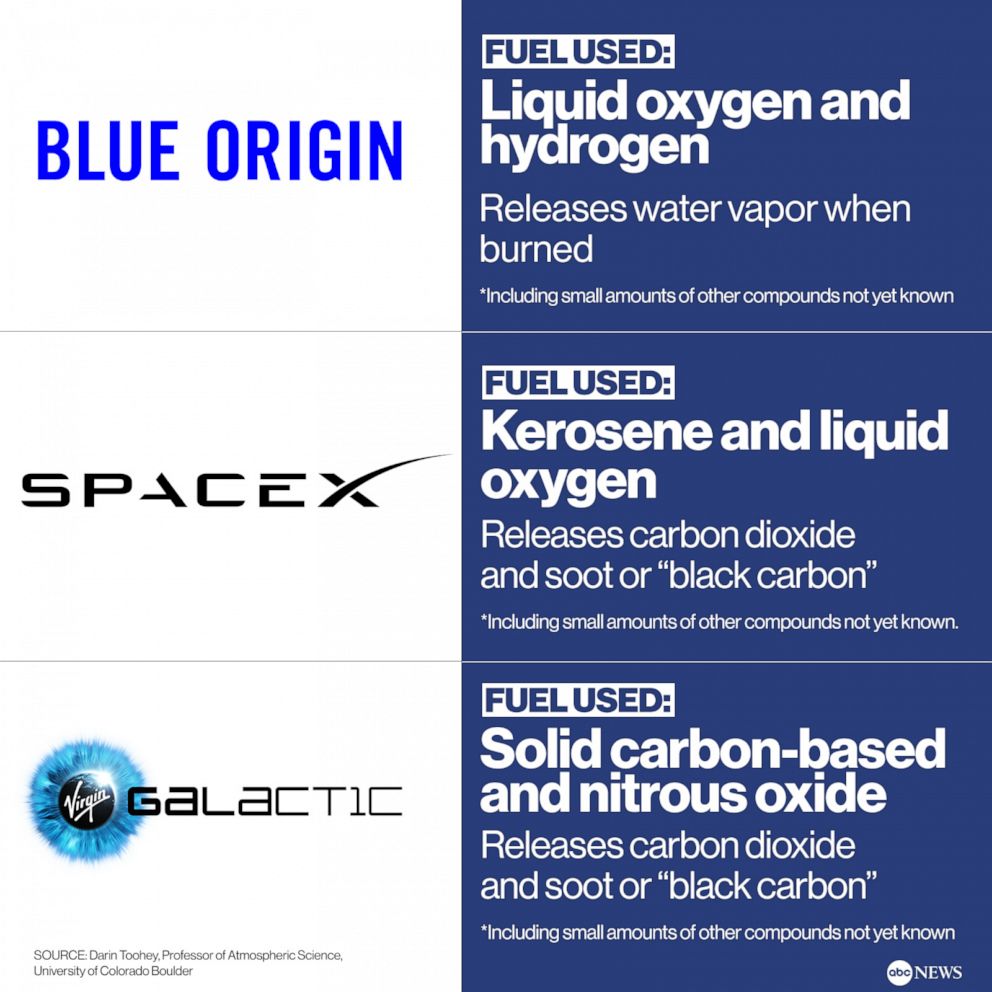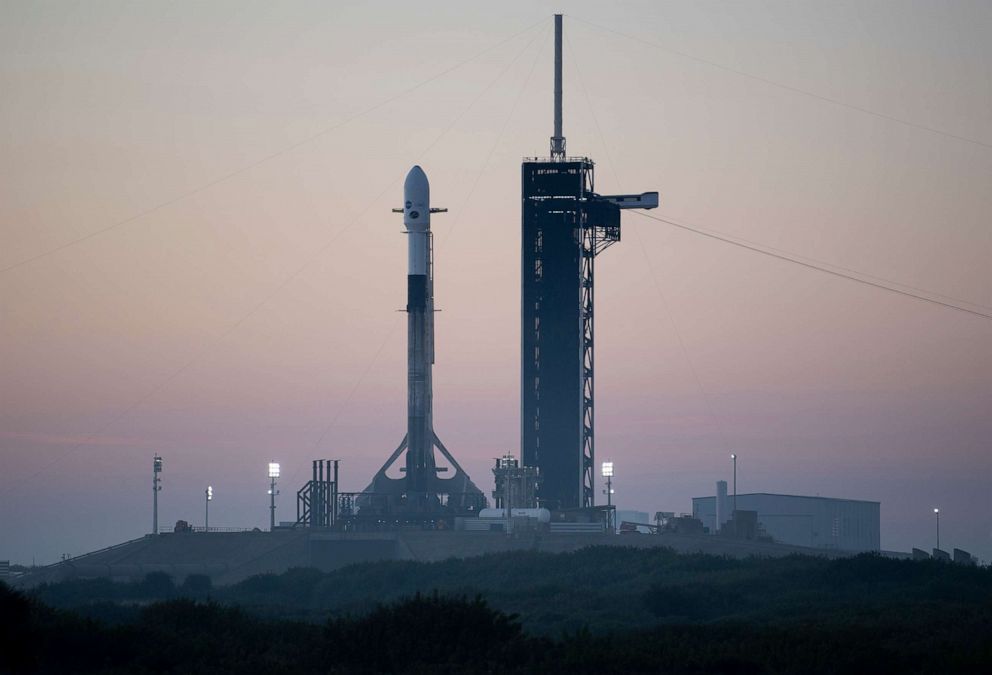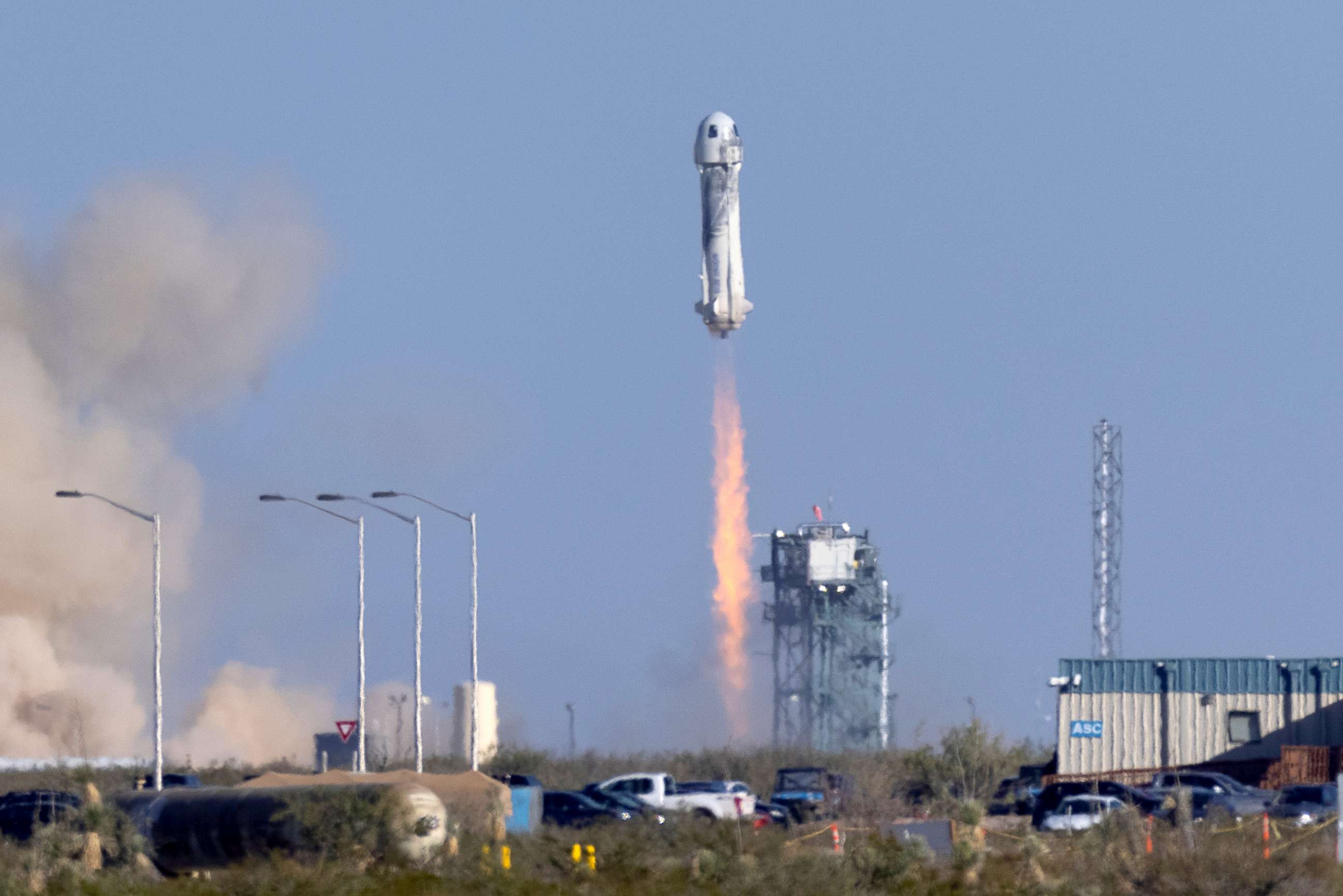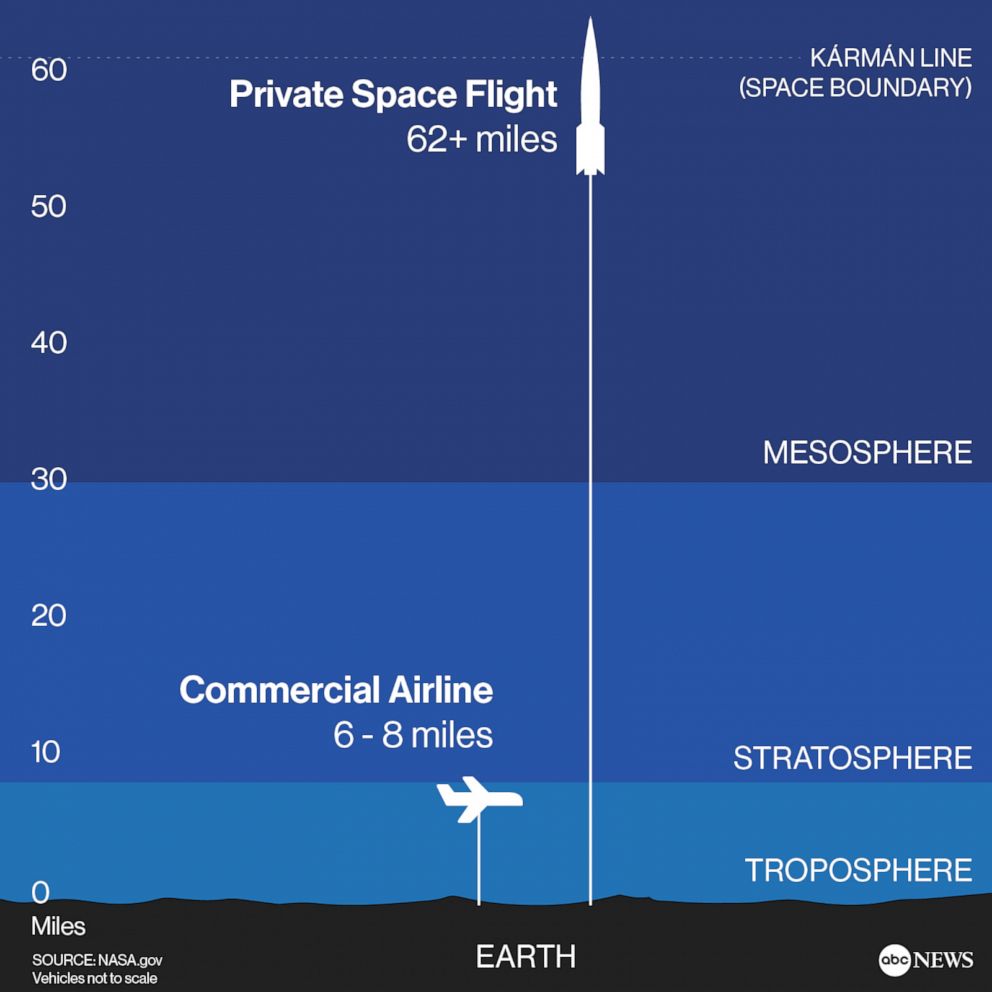Experts say climate impact is a question mark if space tourism takes off
Experts say they need more data on climate impacts of more space flights.
Private space travel may seem like a step into the future, but experts say there are still questions about how it will impact our future climate.
Companies like Blue Origin, SpaceX and Virgin Galactic are offering to make space travel accessible to those who can afford it, taking paying customers to space instead of government-trained astronauts.
That “space tourism” could add hundreds more rocket launches to the mix each year as companies like Virgin Galactic say they plan to expand flights to hundreds a year, and experts say those launches could generate more greenhouse gases amid the battle against global warming.

One model published in the American Geophysical Union magazine found that 400 space flights per year over 40 years would generate enough greenhouse gas emissions to cause up to 1°C more warming in the Arctic than is already projected.
“When you get to that kind of change, those are the kinds of changes that we worry about when it comes to impacts of climate change in general from other human emissions at the surface like CO2,” said Darin Toohey, a professor of atmospheric science at the University of Colorado- Boulder and one of the authors of the study.
There isn’t a lot of research about the impact of space tourism on the environment, but Toohey says experts can make some estimates based on the type of fuel the rockets use and what happens when that fuel is burned.
Toohey says he is especially concerned about carbon-based fuels like the ones used by SpaceX and Virgin Galactic because they generate soot or “black carbon” when they’re burned.
Toohey said black carbon has the potential to be really problematic because it reflects sunlight and could amplify warming in the upper levels of the atmosphere.
“If you look at kilogram per kilogram, the black carbon is between 100,000 and a million times more effective at heating the upper atmosphere,” he told ABC News.
Representatives for Virgin Galactic and SpaceX did not respond to requests for comment.

Blue Origin says the rocket taking the New Shepard capsule into space is fueled by liquid oxygen and hydrogen. The company says that during flight, the only byproduct of New Shepard’s engine combustion is water vapor with no carbon emissions.
Eloise Marais, a professor of geography at University College London, said water vapor can still contribute to warming the atmosphere.
”It’s not doing nothing up there. [Water vapor] can also actually contribute to the formation of clouds in the upper atmosphere where clouds are quite rare and clouds, also, unfortunately, have climate impacts. They change how much sun is reflected or reaches the surface of the earth,” she said.
“So there's all these sort of complexities to consider in something like water vapor that sounds so innocuous.”
"Good Morning America" co-anchor Michael Strahan is scheduled to participate in Saturday’s expected Blue Origin launch.

Marais added that all types of space travel will generate nitrogen oxides, or NOx, from the high temperatures needed to re-enter the atmosphere. NOx are 300 times more potent than carbon dioxide at warming the atmosphere, according to the EPA.
While researchers have begun to look into the impacts of rocket launches from private companies, it’s hard to estimate the impact on the climate without knowing how many flights there will be. Virgin Galactic has said the company hopes to launch 400 flights a year. Blue Origin and SpaceX have not indicated how many launches they hope to execute.
But Marais said even if the industry is much smaller than commercial air travel, for example, there’s a big difference in that rockets fly at a higher altitude and release pollution directly into multiple layers of the atmosphere.
“I think the huge difference that we have to take into account is the direct injection of these pollutants into multiple layers in the atmosphere and the impact that that has is completely different to aircraft which tend to fly, roughly, 10 to 12 kilometers depending on what kind of flight you’re taking, and that's that is really what separates them substantially,” she said.

Marais and Toohey said more studies are needed to understand the consequences of space tourism.
“I think the potential impacts are, I think too uncertain and too potentially hazardous to be able to gamble with just sort of this unregulated industry,” Marais said.
Until data is available, they said, it will be difficult to advise policymakers on the best way to regulate space travel and its impact on the climate.



